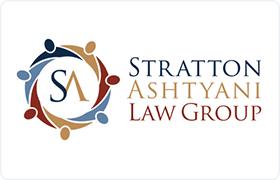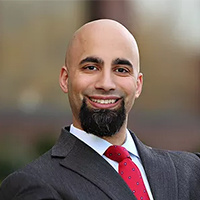Hackensack Estate Lawyer, New Jersey, page 2
Sponsored Law Firm
-
 x
x

Click For More Info:
-
Stratton Ashtyani Law Group
795 Franklin Avenue Suite 206 Franklin Lakes, NJ 07417» view mapEstate Law Dedicated To Helping Families Plan
Our attorneys are experienced litigators who understand the importance and efficiency of preventing litigation through proper planning.
800-706-9810
Edward T. Rogan
Real Estate, Mass Torts, Lawsuit & Dispute, Estate, Accident & Injury
Status: In Good Standing *Status is reviewed annually. For latest information visit here
William D. Russiello
Estate, Wills & Probate, Lawsuit & Dispute, Real Estate, Business
Status: In Good Standing *Status is reviewed annually. For latest information visit here Licensed: 43 Years
Nicholas C Ponzini
Tax, Business Organization, Real Estate, Wills & Probate
Status: In Good Standing *Status is reviewed annually. For latest information visit here Licensed: 19 Years
FREE CONSULTATION
CONTACTGary Zalarick
Real Estate, Estate, Divorce & Family Law, Accident & Injury
Status: In Good Standing *Status is reviewed annually. For latest information visit here Licensed: 36 Years
FREE CONSULTATION
CONTACTBruce L. Nussman
Estate Administration, Corporate, Business Organization, Banking & Finance
Status: In Good Standing *Status is reviewed annually. For latest information visit here Licensed: 53 Years
Matthew Z. Earle
International, Estate Planning, Family Law, Criminal, Real Estate
Status: In Good Standing *Status is reviewed annually. For latest information visit here Licensed: 21 Years
Edwin Carter Corriston
Estate Planning, Family Law, Government Agencies, Litigation
Status: In Good Standing *Status is reviewed annually. For latest information visit here Licensed: 33 Years
Doris Brandstatter
Estate Administration, Estate Planning, Estate, Civil & Human Rights, Environmental Law Other
Status: In Good Standing *Status is reviewed annually. For latest information visit here Licensed: 38 Years
Arthur I. Goldberg
Other, Tax, Estate Planning
Status: In Good Standing *Status is reviewed annually. For latest information visit here Licensed: 47 Years
James P. Logan
Trusts, Transactions, Municipal, Wills
Status: In Good Standing *Status is reviewed annually. For latest information visit here
 Nima Ashtyani Franklin Lakes, NJ
Nima Ashtyani Franklin Lakes, NJ Practice AreasExpertise
Practice AreasExpertise